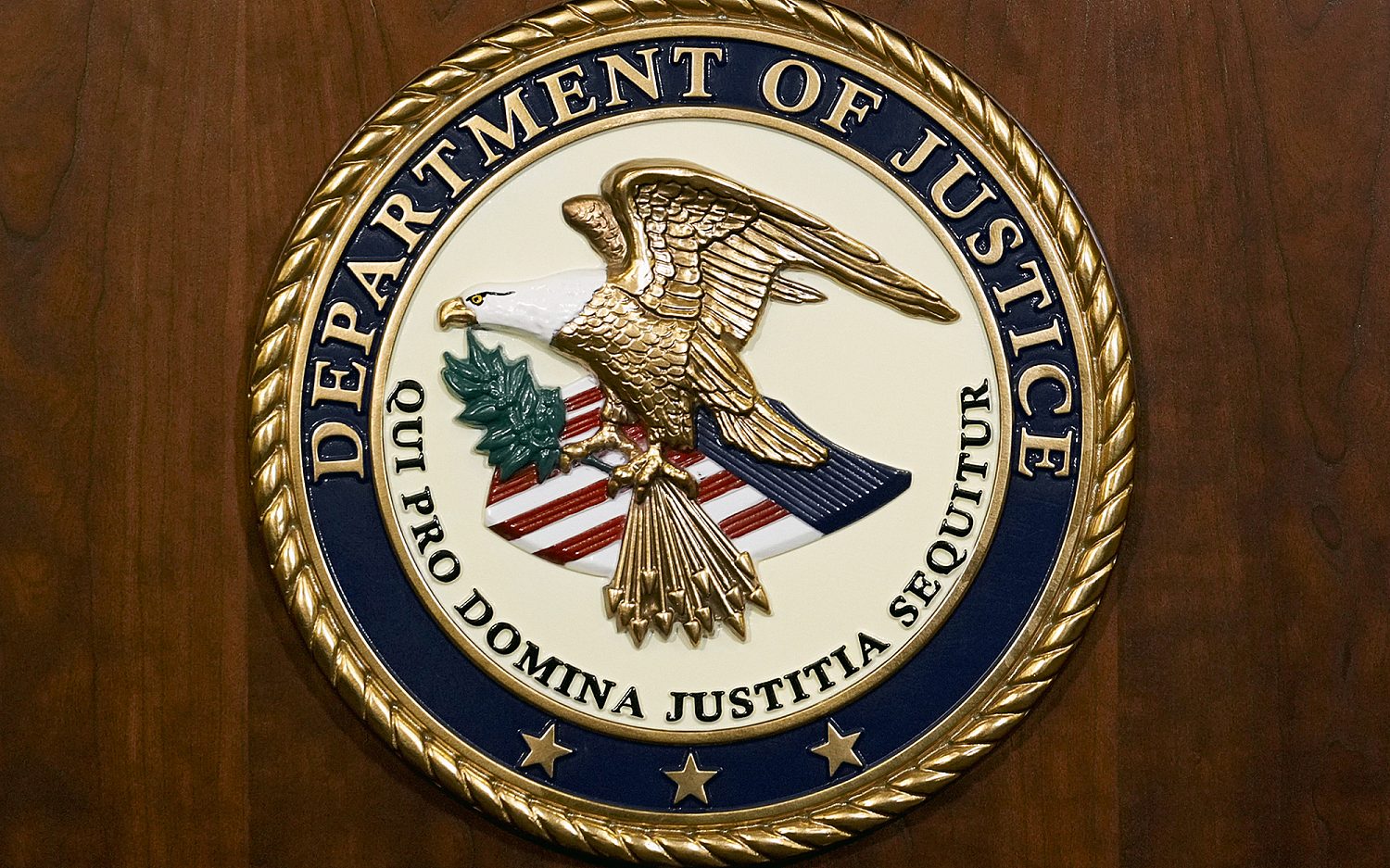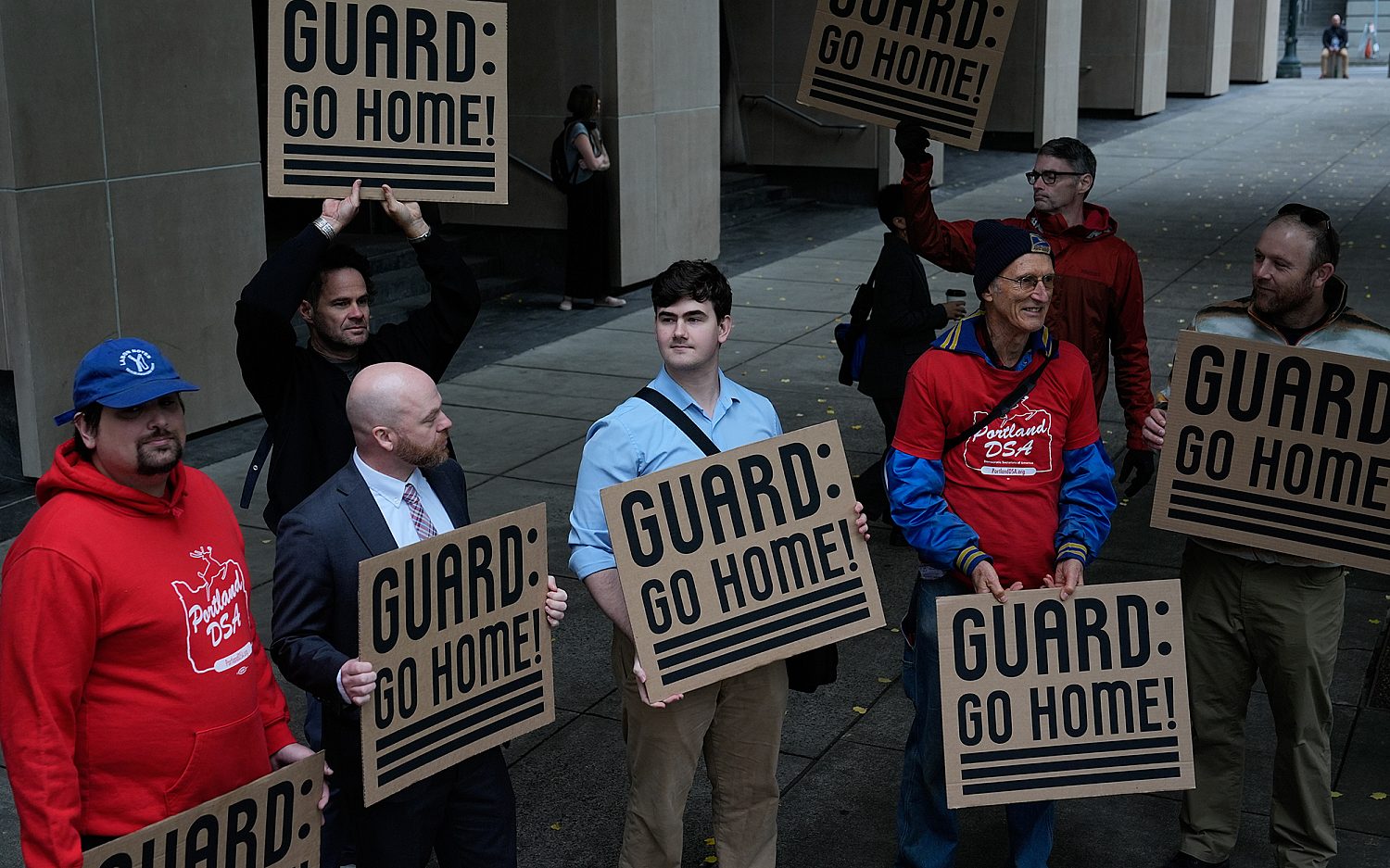Highest military court considers limits of religious liberty in uniform
The military’s highest court, the Court of Appeals for the Armed Forces (CAAF), heard oral arguments Wednesday in a case that could determine the future applicability of religious liberty protections for military service members.
Marine Lance Cpl. Monifa J. Sterling was convicted in a court martial for disobeying an order from her superior to take down three Bible passages she had posted around her workplace. The signs, printed in 28-point font on strips of paper, contained a personalization of Isaiah 54:17 and said, “No weapon formed against me shall prosper.”
Sterling was found guilty and sentenced to a demotion in rank, to private, and a bad conduct discharge from the Marine Corps. The Navy-Marine Corps Court of Criminal Appeals reviewed the case and upheld the conviction, ruling the order was lawful because “other service members come to [the] accused’s workspace for assistance at which time they could have seen the signs.”
The CAAF—a panel of five civilian judges appointed for 15-year terms by the president with Senate approval—agreed in October to review the case on the basis of two key issues. First, was Sterling’s conduct in displaying the signs in her shared workplace an exercise of religion as defined under the federal Religious Freedom Restoration Act? And second, did her superior non-commissioned officer have a valid military purpose in ordering her to remove the signs?
Paul D. Clement, a former U.S. solicitor general who argued and won the Hobby Lobby case before the U.S. Supreme Court, argued on Sterling’s behalf. Brian Keller, an attorney with the Navy-Marine Corps Appellate Review Activity, argued for the government. Both lawyers had 20 minutes to present their arguments.
“I think the judges were certainly very interested in the religious liberty issue. They asked pretty pointed and difficult questions,” said Michael Berry, senior counsel and director of military affairs at First Liberty Institute, the religious liberty law firm representing Sterling. “But they asked difficult questions of both sides, and I think, clearly, the Constitution and the federal law and military regulations are in our favor. And so, we’re hopeful of a positive outcome.”
Berry noted that although the judges’ questions were designed to probe the boundaries of an argument and not necessarily signal whether they were in agreement or disagreement, at least one may have hinted at his thinking.
“One of the judges said something to the effect of in his opinion, this case boils down to a very simple, logical issue, which is whether or not it’s a burden on religious exercise to put somebody through a court martial for displaying a Bible verse,” Berry said.
Such a statement suggests at least one of the judges likely thinks Sterling’s action was an exercise of religion. But Keller argued Sterling failed to demonstrate her actions met that standard. In its written brief, the government claimed Sterling’s “attempt, post-trial, to link the quote to the Book of Isaiah is an attempt at improper appellate fact-finding and should be rejected.”
If the court determines Sterling’s actions constituted an exercise of religion, the government must demonstrate it had a compelling interest in ordering her to take the signs down and that it used the least restrictive means to further that interest.
Berry hopes a favorable decision by the court would, at the very least, remove the federal conviction from Sterling’s record. The best possible outcome, in his view, also would include some other form of relief.
“If they remove the conviction and decide in light of that, maybe she shouldn’t have been punitively discharged,” Berry told me after the hearing. “Maybe we shouldn’t have reduced her in rank, and so we have to give her some back pay.”
Several national leaders filed briefs in support of Sterling, including 43 members of Congress, a coalition of religious leaders, and nine retired generals.
“Lance Cpl. Monifa Sterling’s appeal that was heard today may help determine the future First Amendment climate in the entire military,” said Lt. Gen. (Ret.) Jerry Boykin, Family Research Council executive vice president, in a statement. “Sterling was denied her religious liberties, and now the appellate process will determine whether that will be the new norm or whether those constitutional rights will be upheld.”
An actual newsletter worth subscribing to instead of just a collection of links. —Adam
Sign up to receive The Sift email newsletter each weekday morning for the latest headlines from WORLD’s breaking news team.




Please wait while we load the latest comments...
Comments
Please register, subscribe, or log in to comment on this article.